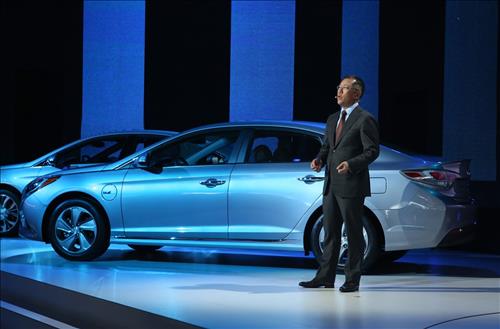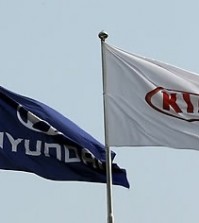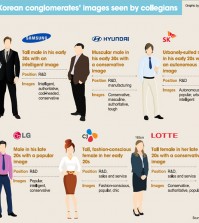- California Assembly OKs highest minimum wage in nation
- S. Korea unveils first graphic cigarette warnings
- US joins with South Korea, Japan in bid to deter North Korea
- LPGA golfer Chun In-gee finally back in action
- S. Korea won’t be top seed in final World Cup qualification round
- US men’s soccer misses 2nd straight Olympics
- US back on track in qualifying with 4-0 win over Guatemala
- High-intensity workout injuries spawn cottage industry
- CDC expands range of Zika mosquitoes into parts of Northeast
- Who knew? ‘The Walking Dead’ is helping families connect
Hyundai unveils first Korean-made plug-in hybrid

The new Hyundai Sonata Plug-in Hybrid is displayed next to Vice Chairman Chung Eui-sun of Hyundai Motor Co. at the media preview of the North American International Auto Show in Detroit on Jan. 12, 2015. (photo courtesy of Hyundai Motor Co.)
SEOUL (Yonhap) — South Korea’s top carmaker Hyundai Motor Co. took the wraps off of its Sonata plug-in hybrid electric vehicle (PHEV) at a motor show in the U.S. on Monday (local time), its first-ever car that can be recharged to run on both gasoline and electricity.
“The Sonata Plug-in Hybrid is a first of its kind engineered and built by a South Korean company, and will be a symbol of our outstanding green vehicle technology,” said Vice Chairman Chung Eui-sun of Hyundai Motor.
The company released the details of the unveiling in Seoul.
The new hybrid midsize sedan, shown at the North American International Auto Show in Detroit, is estimated to travel up to 22 miles, or 35.4 kilometers, solely on electric power with its 9.8 kilowatt-hour battery pack, according to Hyundai Motor.
The powertrain incorporates a 2.0-liter Nu four-cylinder engine coupled with a 50-kilowatt electric motor so that the vehicle can continue to operate with the likes of the more conventional hybrid cars even when the battery runs out.
Standard safety features include a tire pressure monitoring system and electronic stability control, which helps to avoid crashes by reducing the dangers of skidding. The plug-in model also comes with vehicle stability management for directional steadiness when driving on slippery roads.
The Sonata PHEV, to be produced in South Korea, will be launched in the carmaker’s home market and in the United States later this year, Hyundai said. Pricing of the new hybrid was not disclosed.
“Hyundai Motor will strengthen its competitiveness in overall eco-friendly car lineups, including fuel cell, hybrid and electric vehicles, so as to emerge as an industry leader in the business,” Chung said.
Hyundai Motor and Kia Motors Corp., flagships of the world’s No. 5 automotive conglomerate Hyundai Motor Group, plan to become the world’s second-largest manufacturers of fuel-efficient cars by 2020, up from fifth place they claimed last year. Toyota is currently the industry leader in the green car sector.
Industry analysts anticipate that demand for eco-friendly vehicles will soar to 6.4 million units in 2020 from last year’s 2.2 million.















